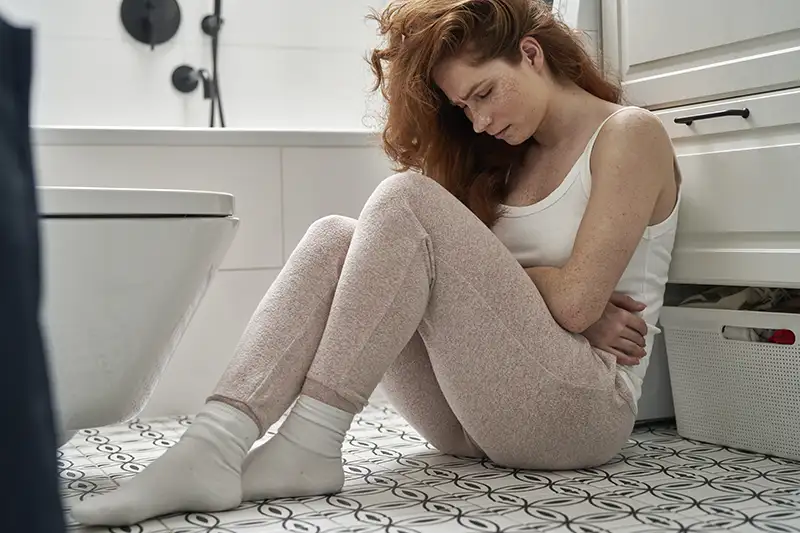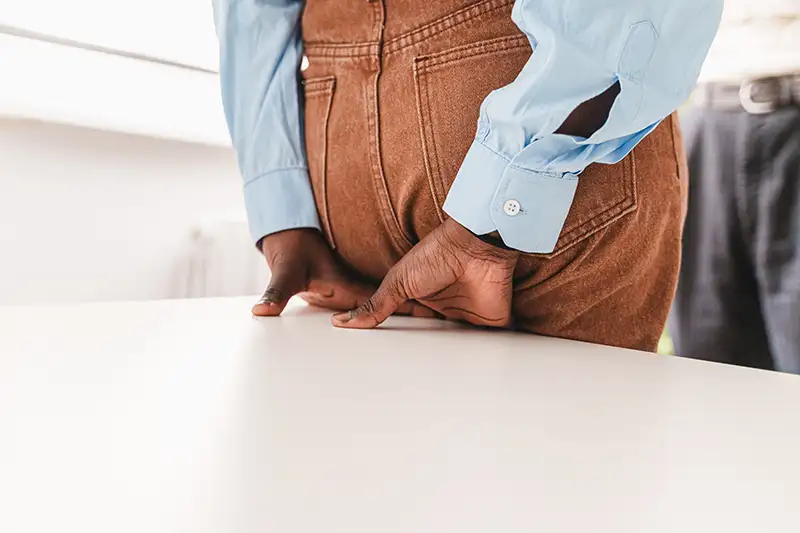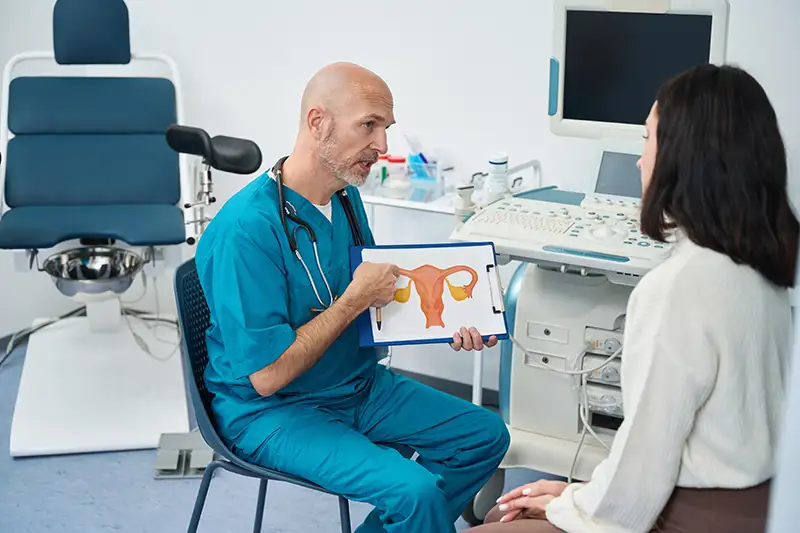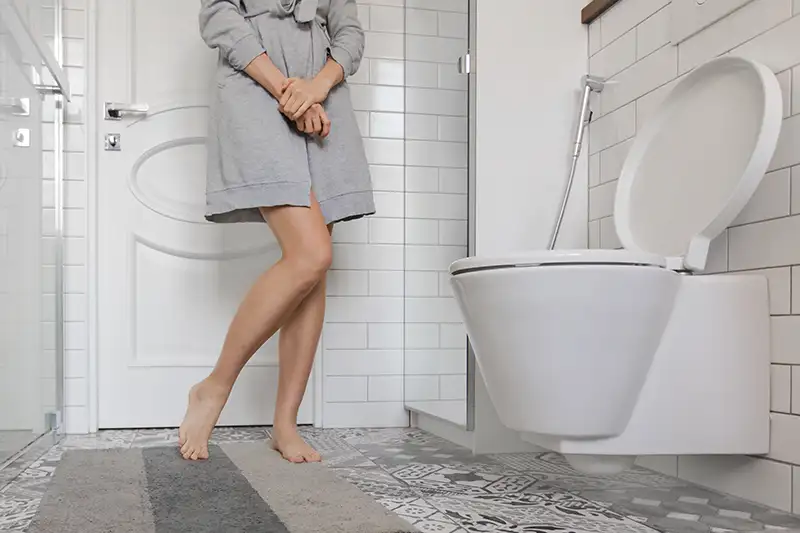Personalized Overactive Bladder Solutions in Denver
Overactive bladder (OAB) can disrupt everyday routines with the sudden urge to urinate, leaking urine, or the constant need for bathroom access. At Incontinence Centers of America, we specialize in identifying the root causes of your overactive bladder symptoms. Using Axonics Therapy, a leading-edge form of neuromodulation, we help retrain your bladder by gently stimulating the sacral nerves that control bladder function. This innovative treatment works at the source of overactive bladder symptoms, restoring control and confidence with a long-term, minimally invasive solution.
Our Denver clinic proudly serves patients across the metro area, along with our Colorado Springs location. Many individuals turn to us after other treatments have fallen short. With our experience and evidence-based approach, we deliver lasting results where others haven’t.
What is an Overactive Bladder?
Overactive Bladder (or OAB) is a condition that causes a sudden and uncontrollable urge to urinate, often accompanied by frequent urination and sometimes involuntary leakage of urine. This condition can have a significant impact on your quality of life, affecting everything from personal confidence to social interactions and overall well-being. Getting medical help sooner rather than later is critical for managing your symptoms and getting your life back.

What causes an Overactive Bladder?
It’s difficult to identify the exact cause of Overactive Bladder (OAB) since it can be caused by a combination of various factors. But there are several things that may contribute to the development of OAB, including:
- Age-Related Changes: As people age, the bladder’s ability to control and store urine may decline. This can lead to increased urgency, frequency, and incontinence.
- Neurological Disorders: Conditions such as stroke, Parkinson’s disease, or multiple sclerosis can wreak havoc on the nerve signals that control how the bladder works, leading to symptoms of OAB.
- Bladder Infections or Inflammation: Infections such as a urinary tract infection or chronic inflammation of the bladder can irritate the lining of the bladder, causing it to become overactive with symptoms of frequent and urgent urination.
- Medications and Medical Conditions: Certain medications, especially diuretics and those that affect bladder function, can contribute to OAB symptoms. Additionally, underlying medical conditions such as diabetes or interstitial cystitis can make bladder issues worsen.
Understanding these contributing factors is crucial for accurately diagnosing and effectively managing overactive bladder. (719) 427-4564

What Are The Symptoms Of An Overactive Bladder
When it comes to overactive bladder there can be a variety of symptoms including:
- Frequent need to urinate
- Urgent need to urinate that is difficult to delay
- Involuntary leakage of urine (urge incontinence)
- Waking up multiple times during the night to go to the bathroom
Incontinence Centers of America recommends seeing a doctor as soon as you notice a change in your urination, because the longer you hold off on receiving medical help, the worse the overactive bladder can get. Not only this, but OAB does not go away on its own and does require care.
Overactive Bladder in Women
Women often experience an overactive bladder due to weakened pelvic floor muscles, hormonal changes, or pregnancy and childbirth-related strain. Conditions like stress urinary incontinence and urge incontinence can significantly affect daily life, causing urine leaks during physical activity or a sudden urge that’s hard to control. At our Denver clinic, we provide customized treatment plans that address the specific causes of OAB in women.
We focus on long-term relief through Axonics Therapy, a cutting-edge form of neuromodulation that gently stimulates the sacral nerves to restore normal bladder function. This small implantable device helps regulate the signals between the brain and bladder, reducing sudden urges and leaks. For many women, Axonics provides lasting improvement without the need for medication or invasive surgery.
Overactive Bladder in Men
Overactive bladder in men often involves a combination of bladder muscle overactivity and issues related to the prostate. Many male patients experience urinary frequency, a sudden urge to urinate, and difficulty releasing urine due to bladder outlet obstruction or nerve signaling issues. At Incontinence Centers of America, we look beyond just the symptoms. Our evaluations include checking for underlying conditions such as enlarged prostate, nerve damage, or post-surgical complications from procedures like prostate surgery.
We offer advanced solutions for men, including Axonics Therapy, a minimally invasive neuromodulation treatment that helps regulate the nerve signals responsible for bladder control. This small device targets the sacral nerves to reduce bladder contractions and improve urine flow, making it especially effective for men experiencing urinary retention or double voiding. Alongside Axonics, we tailor treatment plans that may also include bladder training and pelvic floor support. With our expertise, men throughout Denver regain control and confidence without relying solely on overactive bladder medications.
What Treatment Options Are Available For Overactive Bladder
At Incontinence Centers of America, we offer several treatments to help with overactive bladder. One of our newest options is Axonics Therapy, which works by targeting the nerves and muscles that control the bladder. It is designed to help restore normal communication between your brain and your bladder or your brain and your bowel. Thanks to Axonics®:
- 93% of patients achieved clinically significant improvements after 2 years
- 94% of patients were satisfied with the Axonics® therapy
- Less than 2% felt any discomfort from the implant
- Pezzella A, McCrery R, Lane F, et al. Two-year outcomes of the ARTISAN-SNM study for the treatment of urinary urgency incontinence using the Axonics rechargeable sacral neuromodulation system. Neurourol Urodyn. 2021;40(2):714-721. doi:10.1002/nau.24615
- Blok, B, et al. Neurourol Urodyn. 2020
We also provide more traditional treatments, such as behavioral therapy and medications. Our team will work closely with you to create a treatment plan that’s just right for your needs and goals.







